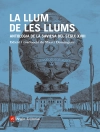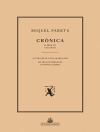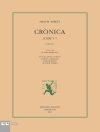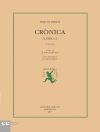Globalized Peripheries examines the commodity flows and financial ties within Central and Eastern Europe in order to situate these regions as important contributors to Atlantic trade networks.
The early modern Atlantic world, with its flows of bullion, of free and unfree labourers, of colonial produce and of manufactures from Europe and Asia, with mercantile networks and rent-seeking capital, has to date been describedalmost entirely as the preserve of the Western sea powers. More recent scholarship has rediscovered the dense entanglements with Central and Eastern Europe.
Globalized Peripheries goes further by looking beyond slaveryand American plantations. Contributions look at the trading practices and networks of merchants established in Central and Eastern Europe, investigate commodity flows between these regions and the Atlantic world, and explore the production of export commodities, two-way migration as well as financial ties. The volume uncovers new economic and financial connections between Prussia, the Habsburg Empire, Russia, as well as northern and western Germany with the Atlantic world. Its period coverage connects the end of the early modern world with the eighteenth and nineteenth centuries.
JUTTA WIMMLER is a research group leader at the Bonn Center for Dependency and Slavery Studies.
KLAUS WEBER holds the chair of European Economic and Social History at the European University Viadrina in Frankfurt (Oder).
CONTRIBUTORS: Bernhard Struck, Anka Steffen, Jutta Wimmler, Friederike Gehrmann, Torsten dos Santos Arnold, Klemens Kaps, Anne Sophie Overkamp, Margrit Schulte Beerbühl, Josef Köstlbauer, Alexandra Gittermann, David K. Thomson, Göran Rydén.
สารบัญ
Constructing Atlantic Peripheries: A Critical View of the Historiography – Jutta Wimmler and Klaus Weber
Did Prussia have an Atlantic History? The Partitions of Poland-Lithuania, the French Colonization of Guiana, and Climates in the Caribbean, c. 1760s-1780s – Bernhard Struck
A Fierce Competition! Silesian Linens and Indian Cottons on the West African Coast in the Late Seventeenth and Early Eighteenth Centuries – Anka Steffen
Prussia’s New Gate to the World: Stettin’s Overseas Imports 1720-1770 and Prussia’s Rise to Power – Jutta Wimmler
Luxuries from the Periphery: The Global Dimensions of the Eighteenth-Century Russian Rhubarb Trade – Friederike Gehrmann
Atlantic Sugar and Central Europe: Sugar Importers in Hamburg and their Trade with Bordeaux and Lisbon, 1733-1798 – Torsten dos Santos Arnold
A Gateway to the Spanish Atlantic? The Habsburg Port City of Trieste as Intermediary in Commodity Flows between the Habsburg Monarchy and Spain in the Eighteenth Century – Klemens Kaps
A Cartel on the Periphery. Wupper Valley Merchants and their Strategies in Atlantic Trade (1790s-1820s) – Anne Sophie Overkamp
Linen and Merchants from the Duchy of Berg, Lower Saxony and Westphalia and their Global Trade in Eighteenth-Century London – Margrit Schulte Beerbühl
Ambiguous Passages: Non-Europeans Brought to Europe by the Moravian Brethren during the Eighteenth Century – Josef Köstlbauer
German Emigrants as a Commodity in the Eighteenth-Century Atlantic World – Alexandra Gittermann
Reorienting Atlantic World Financial Capitalism: America and the German States – David K. Thomson
Afterword – Göran Rydén
เกี่ยวกับผู้แต่ง
KLAUS WEBER holds the chair of European Economic and Social History at the European University Viadrina in Frankfurt (Oder).












